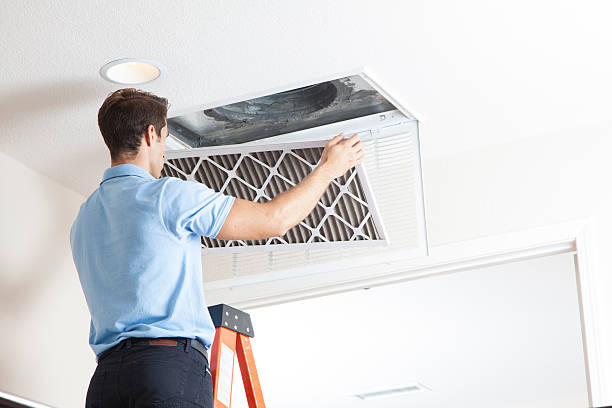Air conditioners are indispensable appliances, providing comfort and relief from sweltering heat during hot summer months. However, the operation of air conditioners can be influenced by various environmental factors, impacting their efficiency, performance, and longevity. Understanding the effects of environmental factors on air conditioner operation and implementing preventive measures can help mitigate potential problems and ensure optimal cooling performance. In this article, we’ll explore the impact of environmental factors on air conditioner operation and discuss practical strategies to prevent issues and maximize efficiency.
Effect of Environmental Factors on Air Conditioner Operation
Temperature:
Temperature plays a significant role in air conditioner operation, as it determines the workload and cooling capacity required to maintain indoor comfort. Extremely high temperatures can strain the air conditioner’s compressor and components, leading to increased energy consumption and potential overheating. Conversely, lower temperatures may reduce the workload on the air conditioner but can also impact its efficiency and effectiveness in maintaining desired indoor temperatures.
Humidity:
Humidity levels affect both comfort and air conditioner performance. High humidity can make indoor spaces feel warmer and stickier, prompting the air conditioner to work harder to remove moisture from the air. Excessive humidity can also promote mold and mildew growth within the air conditioner, leading to foul odors and reduced indoor air quality. On the other hand, low humidity levels can cause discomfort and dryness, potentially leading to issues such as static electricity and respiratory irritation.
Air Quality:
Poor air quality, characterized by pollutants, allergens, and particulate matter in the air, can impact air conditioner performance and indoor air quality. Airborne contaminants can accumulate on the air conditioner’s filters, coils, and ducts, reducing airflow and efficiency. Additionally, pollutants can infiltrate indoor spaces, exacerbating respiratory issues and allergies. Regular maintenance and filter replacement are essential for preserving air conditioner efficiency and improving indoor air quality.
Outdoor Conditions:
Outdoor environmental factors, such as sunlight exposure, debris accumulation, and weather conditions, can affect the performance and longevity of air conditioners. Direct sunlight can increase the temperature of the outdoor unit, causing it to work harder to dissipate heat. Debris, such as leaves, branches, and dirt, can obstruct airflow and impede the operation of the outdoor unit’s fan and coils. Adverse weather conditions, such as heavy rain, hail, and storms, can damage air conditioner components and compromise their efficiency.
Preventive Measures to Ensure Optimal Air Conditioner Operation
Regular Maintenance:
Scheduled maintenance is essential for ensuring optimal air conditioner performance and longevity. Hire a professional HVAC technician to inspect and service your air conditioner regularly, including cleaning coils, lubricating moving parts, checking refrigerant levels, and replacing filters. Regular maintenance helps identify and address potential issues before they escalate, ensuring efficient cooling operation and extending the lifespan of the air conditioner.
Proper Installation:
Ensure that your air conditioner is installed correctly and according to manufacturer specifications. Proper installation includes selecting the appropriate size and capacity for your space, positioning the unit away from direct sunlight and heat sources, and ensuring adequate airflow around the outdoor unit. Improper installation can lead to reduced efficiency, frequent breakdowns, and premature wear and tear on components.
Use a Programmable Thermostat:
Invest in a programmable thermostat to optimize energy usage and maximize comfort. Programmable thermostats allow you to set temperature schedules based on your daily routine, ensuring efficient cooling operation when needed and conserving energy when the space is unoccupied. Set the thermostat to slightly higher temperatures during peak heat hours to reduce strain on the air conditioner and lower energy costs.
Maintain Proper Insulation:
Proper insulation in your home or building helps maintain consistent indoor temperatures and reduces the workload on the air conditioner. Insulate walls, windows, doors, and ductwork to minimize heat transfer and prevent air leaks. Adequate insulation helps retain cool air inside during hot weather and reduces the need for the air conditioner to run continuously, resulting in energy savings and improved comfort.
Ensure Adequate Ventilation:
Proper ventilation is essential for maintaining indoor air quality and supporting air conditioner efficiency. Ensure that vents and registers are unobstructed and free from debris to allow for optimal airflow throughout the space. Use exhaust fans in kitchens and bathrooms to remove excess heat and humidity, reducing the workload on the air conditioner.
Environmental factors significantly influence air conditioner operation, affecting efficiency, performance, and indoor comfort. By understanding the impact of temperature, humidity, air quality, and outdoor conditions on air conditioner operation, homeowners can implement preventive measures to mitigate potential problems and maximize efficiency. Regular maintenance, proper installation, use of programmable thermostats, insulation, and ventilation are essential strategies for ensuring optimal air conditioner operation and prolonging the lifespan of the appliance. By taking proactive steps to address environmental factors, homeowners can enjoy reliable cooling performance and comfortable indoor environments throughout the year.
Don’t delay your air conditioner repair. Do not forget that repairing is much easier and cheaper immediately after a breakdown occurs. If your air conditioner is working, but making strange noises or not cooling the room enough, it means it’s time to contact the technicians.
Don’t wait until the air conditioner is completely out of order. In the case of untimely repairs, there is a very high possibility that a long complex repair will be required. Even a few days without air conditioning in the summer heat in San Diego County, CA will bring great discomfort to the whole family. But by calling the masters from SDAC Heating & Air Conditioning you can avoid this problem.
Contact us
